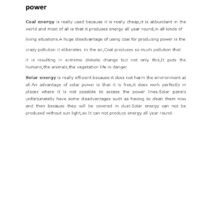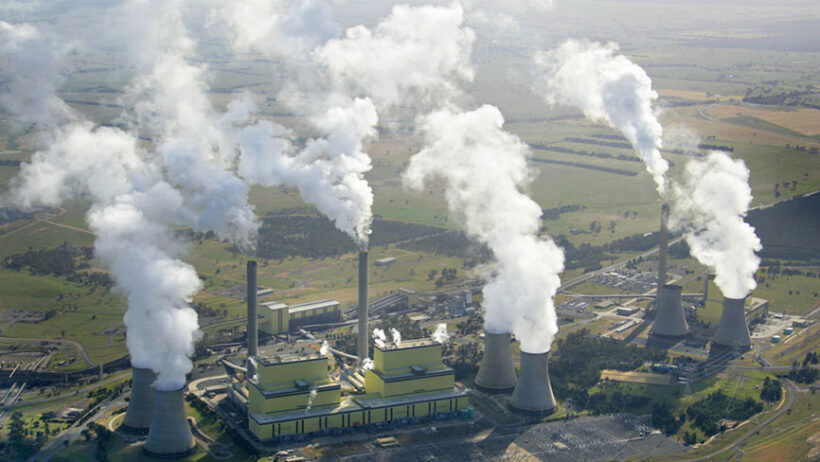The combustion of fossil fuels is a critical factor driving global warming. In our modern world, the plethora of energy demands stems from various sectors, including transportation, industry, and heating. Unfortunately, the primary sources of energy used in these areas—coal, oil, and natural gas—release substantial amounts of greenhouse gases, particularly carbon dioxide (CO₂), when burned. This intricate connection between combustion fuels and climate change is the focal point for understanding the urgency of addressing fossil fuel consumption.
Fossil fuels are derived from ancient organic matter that has undergone transformation over millions of years, primarily composed of carbon and hydrogen. Upon combustion, these hydrocarbons react with oxygen, producing energy, water, and CO₂. Notably, coal is one of the most carbon-intensive fossil fuels, releasing more CO₂ per unit of energy produced than either oil or natural gas. Consequently, it is often at the forefront of discussions surrounding emissions and their effect on global temperature increase.
In contrast, natural gas, while touted as a cleaner alternative to coal, still emits significant amounts of CO₂. The ability to extract and utilize these fossil fuels has overshadowed their detrimental implications for the environment. This paradigm persists as industries and governments prioritize economic development over ecological sustainability, reinforcing a cycle of dependency on carbon-heavy energy sources.
Looking at the global scenario, the data on carbon emissions paints a stark picture. The electricity generation sector is a significant contributor, with over 40% of total global CO₂ emissions coming from coal-fired power plants. These facilities are notorious not only for their carbon output but also for other harmful pollutants, such as sulfur dioxide (SO₂) and nitrogen oxides (NOx), which can lead to smog and respiratory illnesses. The combustion process itself is inefficient, often resulting in substantial waste energy and further exacerbating the issue of ecological imbalance.
Furthermore, transportation plays a pivotal role in fossil fuel consumption. Gasoline and diesel, derived from oil, keep the world’s vehicles moving but at an enormous environmental cost. The transportation sector accounts for approximately 24% of global CO₂ emissions. The reliance on internal combustion engines illustrates society’s deep-rooted dependence on fossil fuels, emphasizing the dire need for a transition toward more sustainable alternatives.
In addition to direct emissions from burning fossil fuels, one must consider the broader impact of extraction processes—such as drilling, fracking, and mining. These activities pose unique challenges to ecosystems, often leading to deforestation, habitat destruction, and soil degradation. The extraction of coal, for instance, has resulted in devastating environmental consequences, including water pollution and increased greenhouse gas emissions from methane leaks during the extraction of natural gas.
Interestingly, the feedback loops generated by climate change exacerbate the situation. As global temperatures rise, permafrost in polar regions thaws, releasing trapped methane—a potent greenhouse gas—into the atmosphere. This phenomenon further accelerates warming, suggesting that the combustion of fossil fuels could ignite a cascade of environmental changes that may soon become irreversible. The urgency of addressing these issues cannot be overstated; the longer fossil fuel consumption remains unchecked, the more significant the repercussions on climate stability will be.
Renewable energy sources, such as solar, wind, and hydroelectric power, present a viable solution to mitigate these effects. Transitioning from fossil fuels to cleaner alternatives not only helps reduce greenhouse gas emissions but also fosters economic diversity. Countries that invest in renewable energy infrastructure are likely to experience job growth in these emerging sectors, contributing to long-term sustainability. The need for political will and societal shift is paramount in facilitating this transition.
Education and awareness-raising are critical components in combating fossil fuel reliance. Understanding the intricate relationship between combustion and climate change is essential for fostering a responsible approach to energy consumption. The public must be informed about the implications of their choices, from vehicular transportation to household energy use. By promoting energy efficiency and cleaner alternatives, individuals can play an instrumental role in curbing demand for fossil fuels.
Moreover, the concept of carbon pricing is gaining traction. By imposing taxes or cap-and-trade systems on carbon emissions, governments can create a financial impetus for reducing fossil fuel consumption. Such mechanisms underscore the principle of polluter pays, incentivizing industries to innovate and adopt cleaner practices. Such economic frameworks are a step toward ensuring that the environmental costs associated with combustion are accounted for and mitigated where possible.
The intersection of technology and sustainability also offers promise. Innovations such as carbon capture and storage (CCS) aim to mitigate the impacts of fossil fuel combustion. While such technologies are still developing, they present a potential avenue for reducing atmospheric CO₂ levels. As researchers continue to explore novel methodologies, it is essential that the global community supports these initiatives to transition to a more sustainable energy landscape.
Ultimately, the fire within, fueled by the combustion of fossil fuels, is not merely a metaphor but a pressing reality. The consequences of this combustion are clearly outlined in the scientific literature, which continually underscores the critical nature of shifting to sustainable alternatives. By confronting the issues associated with fossil fuel reliance head-on, society can work collaboratively to extinguish the flames of global warming and forge a path toward a more sustainable and resilient future.








